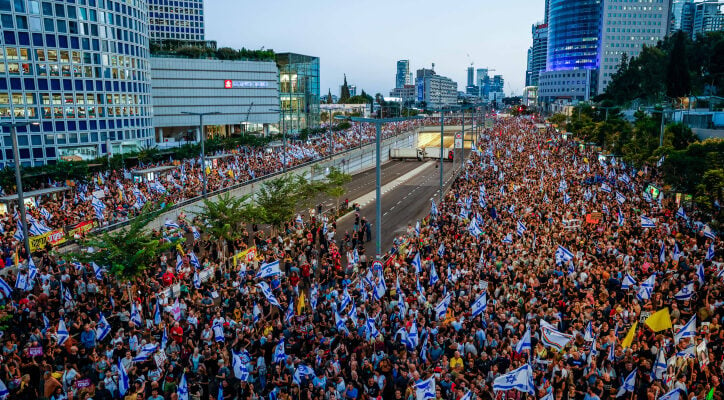Ben Gurion Airport partially shut down after Israel’s largest labor union declares strike.
By World Israel News Staff
Monday morning in Israel saw road closures, disruptions to public transportation, and a partial shut down of Ben Gurion Airport following the announcement of a national labor strike aimed at advancing a ceasefire and hostage exchange deal.
As of 10 A.M., piles of suitcases cluttered the departure hall at the airport, as baggage handlers stopped their work. Between 8 and 10 A.M., no flights departed from Ben Gurion.
The cities of Tel Aviv, Herzliya, and Haifa announced that they were joining the strike, with all schools and municipal services for residents suspended for the day.
However, many municipalities – including the cities of Jerusalem, Netanya, and Holon – said they would not participate in the strike.
Hospitals are continuing their operations in a limited format, with emergency services fully functioning but elective departments shuttered or scaled back.
On Sunday, the IDF recovered the bodies of six hostages, who were murdered by their Hamas captors shortly before they were discovered by troops.
Tens of thousands of Israelis took to the streets hours later, with mass protests in Tel Aviv, Jerusalem, and major intersections throughout the country.
Arnon Bar-David, the head of Israel’s largest labor union, the Histadrut, declared that he was calling a one-day strike to “shut down the economy” and pressure the government into a deal with Hamas to pause the fighting and see the remaining hostages freed.
All of Israel’s major banks, credit card companies, shopping centers and chain stores were shuttered, with only essential businesses remaining open.
A senior Histadrut official, Yaniv Levy, told Radio 103FM that the union may call for the strike to continue on Tuesday.
“This is our job, to raise the cry of the people,” Levy said. “We saw half a million people take to the streets [on Sunday evening], if necessary we will send another half million. There absolutely may be a strike tomorrow, maybe we will expand it to include more sectors. We do not enjoy striking. But we need to lay down the law.”





